From left to right: Dr. Sonya Fatah, Dr. Chris Powell, Dr. Bree Akesson, Dr. Andrew Basso, and Dr. Kim Rygiel.
Article
ZI and BSIA Provide Platform to Discuss Ongoing Conflicts From the Lens of Domicide
14 Oct 2025
Article
14 Oct 2025
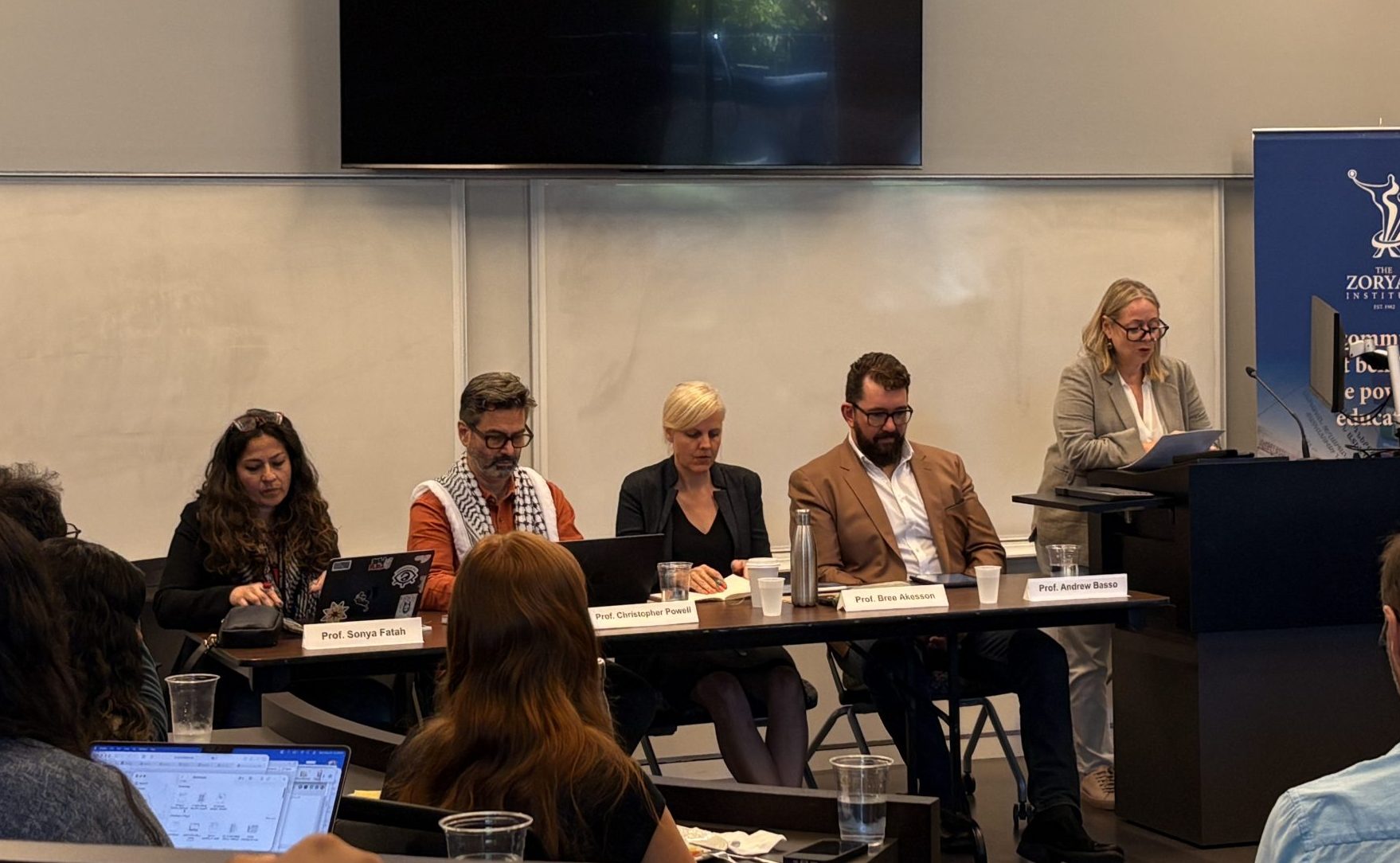
From left to right: Dr. Sonya Fatah, Dr. Chris Powell, Dr. Bree Akesson, Dr. Andrew Basso, and Dr. Kim Rygiel.
October 9, 2025: On Monday, September 29, 2025, the Zoryan Institute, in partnership with the Balsillie School of International Affairs, hosted the conference, Domicide and the Meaning of Home.
There is one thing that the presentations all had in common: they focused on the ongoing destruction of Palestinian homes and the genocide in Gaza, a devastation all of us are bearing witness to in real time. A testimony from Ahmed, a Palestinian refugee, was shared by panellist Mohammad Nijim:
“The loss of a home is unlike any other loss. The walls and stones may seem ordinary, but they hold the essence of life, the canvas of memories, the reflection of one’s past. To be displaced is to have your past erased.”
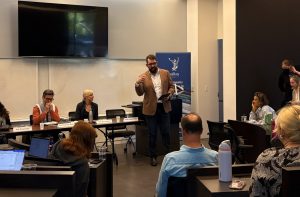
The Institute was thrilled to have two of the foremost experts on the topic of domicide, Dr. Andrew Basso and Dr. Bree Akesson, as panellists for this event. Their co-authored book, Bureaucracy to Bullets: Extreme Domicide and the Right to Home, widely informed and was cited in the 2022 United Nations Report, “Adequate housing as a component of the right to an adequate standard of living, and the right to non-discrimination in this context” https://docs.un.org/en/A/77/190, and reinvigorated international discussion with the use of this term.
Dr. Basso kick-started the discussion with an overview of the concept of domicide. He spoke about the use of wide-area effect weapons in residential neighbourhoods. He went on to highlight the use of unguided rocket artillery and thermobaric weapons for attacks on cities and towns, often outside any clear military necessity, carried out simply to destroy.
Dr. Akesson approached domicide from the perspective of the people it impacts and highlighted the experiences of Palestinians from her work in the West Bank and the Rohingya of Myanmar, from her work interviewing refugees living in Cox Bazaar, Bangladesh.
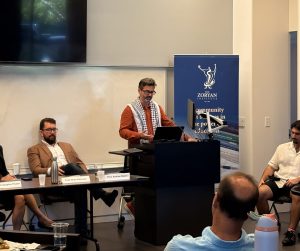 Shifting gears, Dr. Chris Powell provided the audience with a sociological framework for understanding how processes like domicide emerge, particularly in relation to the rise of fascism. He noted that fascism often grows out of self-interest fuelled by exclusionary rhetoric, where communities, feeling economically or culturally threatened, turn against those deemed “other.”
Shifting gears, Dr. Chris Powell provided the audience with a sociological framework for understanding how processes like domicide emerge, particularly in relation to the rise of fascism. He noted that fascism often grows out of self-interest fuelled by exclusionary rhetoric, where communities, feeling economically or culturally threatened, turn against those deemed “other.”
The next panellist, Mohammed Nijim, a Palestinian PhD student at Carleton University, originally from Gaza, offered both a personal perspective and academic insight into the historical and ongoing destruction of Palestinian homes in Gaza.
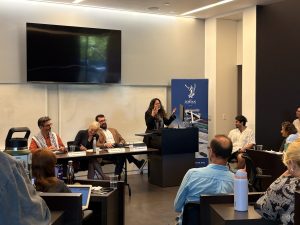
Next, through the lens of live journalism, Dr. Sonya Fatah discussed her ongoing work with the program, stitched! based at the Creative School at Toronto Metropolitan University. This creative collaboration produces the live journalism show, Living with Drones: Stories from Gaza on Aerial Warfare and Its Devastating Consequences, a performance grounded in eyewitness accounts of journalists on the ground in Gaza.
Finally, Dr. Henry Theriault explored the transformation of how land is understood and valued. He explained how we can move away from a commodified view in favour of a perspective that sees land as something that is deeply social, historical, and generative.
The panel drew a large audience, with graduate students filling the lecture hall aisles and many more students, scholars, and full classrooms joining virtually via Zoom as the subject drew the interest of many.
To stay informed about future events like this and additional educational programming by the Zoryan Institute, please visit our website at www.zoryaninstitute.org and follow us on all social media platforms @ZoryanInstitute.
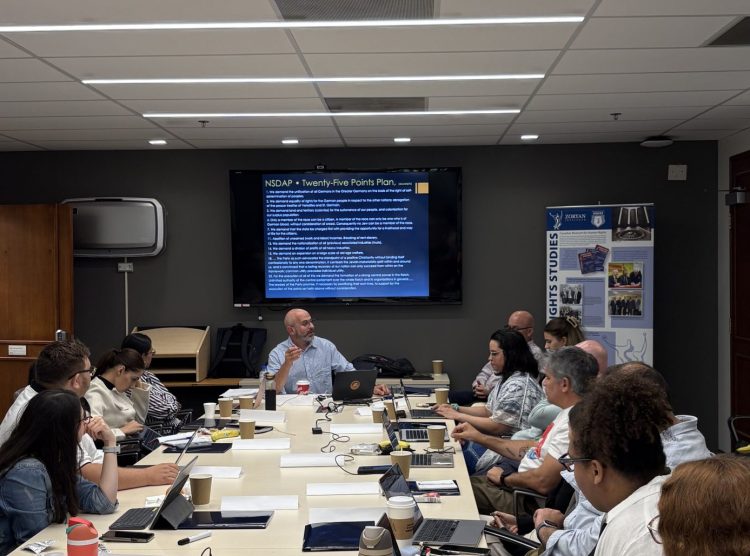
06 Feb 2026
Zoryan Institute Announces Extension of 2026 Genocide and Human Rights University Program Application Deadline
Read More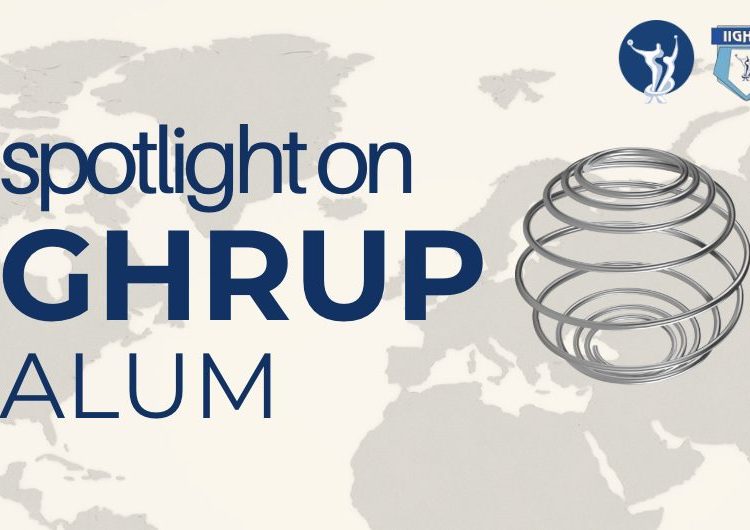
30 Jan 2026
Zoryan Institute Launches “Alumni Spotlight” to Showcase Impact of Genocide and Human Rights University Program Graduates
Read More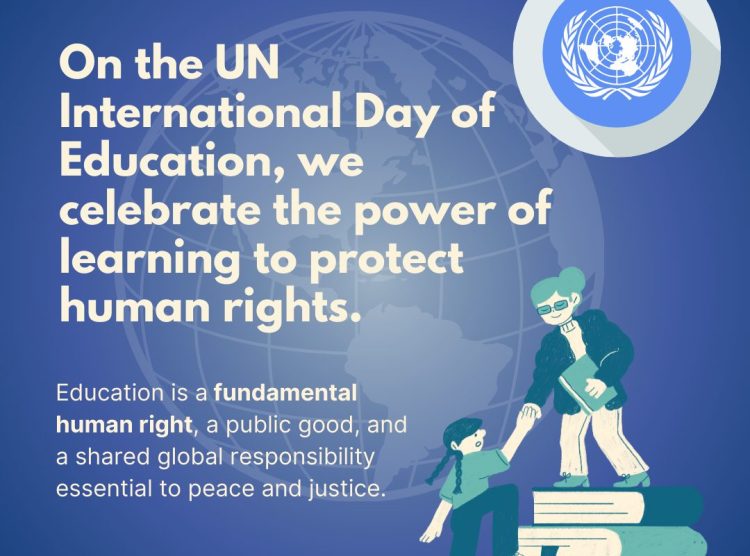
23 Jan 2026
On the UN International Day of Education, Zoryan Institute Highlights the Importance of Genocide Education Through the GHRUP
Read More